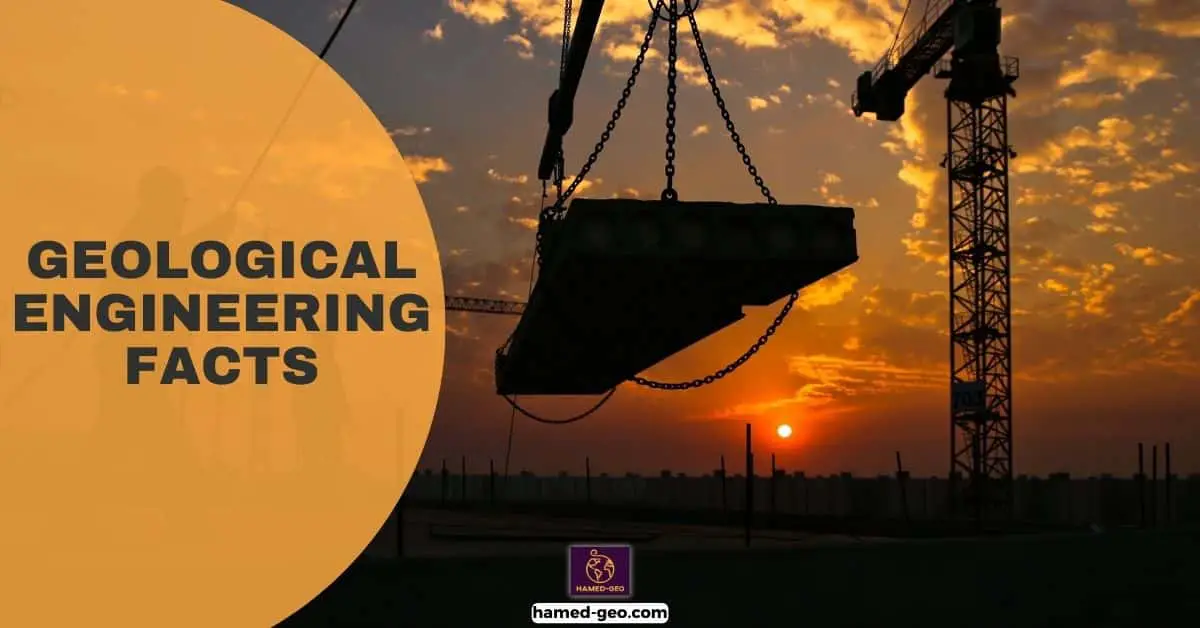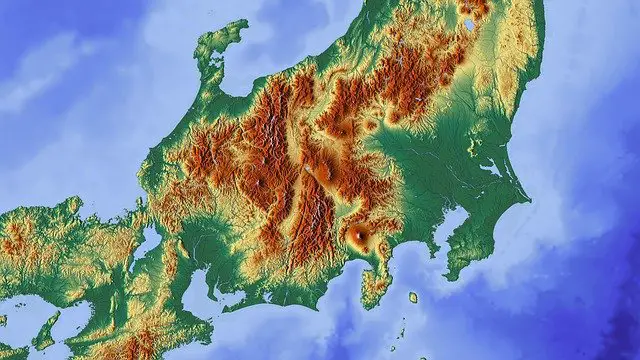Geological engineering is a multidisciplinary field that combines the knowledge of geology, engineering principles, and environmental science to address various engineering and environmental issues. This fascinating field plays a critical role in the construction of infrastructure, the management of natural resources, and the mitigation of natural hazards. In this blog post, we will explore some of the most intriguing geological engineering facts that you might not have known before.
1. Geological engineering dates back to ancient civilizations
The roots of geological engineering can be traced back to the early days of civilization when people began building structures to protect themselves from natural hazards such as floods, earthquakes, and landslides. Over time, people developed techniques for stabilizing slopes, controlling erosion, and constructing dams and other structures to manage water resources.
In the 19th century, the field of geology began to emerge as a distinct scientific discipline, and engineers began to apply geological knowledge to solve engineering problems. The first geological engineering program was established at the Colorado School of Mines in 1869, and the field has continued to grow and evolve ever since.
Today, geological engineers work on a wide range of projects, including designing tunnels, bridges, and dams; managing water resources; mitigating geohazards such as landslides and earthquakes; and exploring mineral resources.
2. Geological engineering played a role in the construction of the world’s tallest building
The Burj Khalifa, located in Dubai, United Arab Emirates, stands a staggering 828 meters (2,722 feet) tall. Constructing a building of this magnitude required extensive geological engineering work. Before construction began, engineers conducted thorough geological investigations to understand the site’s subsurface conditions, which influenced the design of the building’s foundation system. The Burj Khalifa is supported by a massive reinforced concrete mat foundation and more than 190 reinforced concrete piles, each extending up to 50 meters (164 feet) into the ground.
3. Geological engineers help mitigate natural hazards
Natural hazards such as earthquakes, landslides, and volcanic eruptions can cause significant damage to infrastructure and pose a risk to human life. Geological engineers play a crucial role in mitigating these hazards by assessing the potential risk posed by the geological conditions of a site and designing appropriate mitigation measures. For example, they might recommend constructing retaining walls or implementing slope stabilization techniques to reduce the risk of landslides.
4. Geological engineering plays a vital role in the extraction and management of natural resources
Geological engineers are integral to the exploration, extraction, and management of vital natural resources such as oil, gas, minerals, and groundwater. They evaluate the geological characteristics of a site to determine the presence and distribution of valuable resources, and they design and implement extraction methods that minimize environmental impact. Additionally, geological engineers are responsible for ensuring the safe and responsible disposal of waste materials generated during resource extraction.
5. Geological engineering expertise is crucial in the construction of dams
Dams are vital structures that provide numerous benefits, such as flood control, water supply, and hydroelectric power generation. Geological engineers play a crucial role in the design, construction, and maintenance of dams by evaluating the geological and hydrological conditions of a site, designing appropriate foundations and embankments, and monitoring the performance of the dam over time.
6. Geological engineers design and monitor underground structures
From subways and tunnels to underground storage facilities and repositories for nuclear waste, geological engineers are responsible for designing and monitoring the construction of various underground structures. They must assess the geological conditions of a site, such as rock mechanics, soil properties, and groundwater flow, to ensure the stability and safety of the underground structure.
7. Geological engineering is essential in the development of geothermal energy
Geothermal energy is an increasingly popular renewable energy source that harnesses the Earth’s natural heat. Geological engineers are vital in the development of geothermal energy projects, as they need to assess the geological conditions of a site to determine the potential for geothermal energy production. They also design and monitor the construction of geothermal wells and other infrastructure required for harnessing the Earth’s heat.
8. Geological engineering plays a role in the design of coastal defenses
Coastal areas are vulnerable to erosion, flooding, and other hazards due to their proximity to the ocean. Geological engineers contribute to the design and construction of coastal defenses, such as seawalls, breakwaters, and beach nourishment projects, to protect coastal communities and infrastructure from these hazards. They must take into account factors such as wave dynamics, sediment transport, and sea-level rise when designing these defenses.
9. Geological engineers contribute to the field of environmental remediation
Environmental remediation involves the cleanup and restoration of contaminated sites, such as former industrial areas or landfills. Geological engineers play a crucial role in this process by assessing the extent and nature of the contamination, designing and implementing remediation strategies, and monitoring the effectiveness of these strategies over time.
10. Geological engineering is a rapidly evolving field
As our understanding of the Earth’s geological processes and our ability to manipulate and engineer our environment continue to grow, so does the field of geological engineering. Advances in technology, such as remote sensing, geographic information systems (GIS), and computer modeling, have significantly enhanced the capabilities of geological engineers, allowing them to tackle increasingly complex problems and develop innovative solutions.
11. Geological engineering is a multidisciplinary field
Geological engineering is an interdisciplinary field that combines geology, physics, chemistry, mathematics, and engineering. It is a field that requires a broad knowledge of natural sciences and engineering principles to solve complex problems related to the Earth’s surface. Geological engineers work with geologists, hydrologists, environmental scientists, and other professionals to design and build structures interact with the Earth’s surface.
12. Geological Engineering Techniques
Geological engineering is a multidisciplinary field that involves the application of geological, geotechnical, and geophysical principles to solve engineering problems. Geological engineers use various techniques to explore and analyze the subsurface conditions and design structures that can withstand the forces of nature. Here are some of the techniques used in geological engineering:
A. Exploration Techniques
Geological engineers use various methods to explore subsurface conditions and obtain data about the geology, hydrology, and geophysics of a site. Some of the exploration techniques used in geological engineering include:
- Geological mapping and surveying
- Geophysical surveys (e.g., seismic, magnetic, electrical, and gravity surveys)
- Remote sensing (e.g., satellite imagery and aerial photography)
- Ground-penetrating radar
- Soil and rock sampling and testing
B. Drilling Techniques
Drilling is an essential technique used in geological engineering to obtain subsurface data and install various types of structures such as foundations, tunnels, and wells. Some of the drilling techniques used in geological engineering include:
- Rotary drilling
- Diamond drilling
- Percussion drilling
- Auger drilling
- Directional drilling
C. Rock Mechanics
Rock mechanics is the study of the mechanical properties of rocks and how they behave under stress and strain. Geological engineers use rock mechanics principles to design structures that can withstand the forces of nature. Some of the rock mechanics techniques used in geological engineering include:
- Rock mass classification
- Rock slope stability analysis
- Rock reinforcement and support
- Excavation design and optimization
- Numerical modeling and simulation
D. Geomechanics
Geomechanics is the study of the mechanical properties of soils and how they behave under stress and strain. Geological engineers use geomechanics principles to design foundations, embankments, and other structures that can support the loads imposed on them. Some of the geomechanics techniques used in geological engineering include:
- Soil classification and characterization
- Soil compaction and stabilization
- Foundation design and analysis
- Earthquake engineering
- Geosynthetics and soil improvement techniques
In conclusion, geological engineering is a fascinating field that combines natural sciences and engineering principles to solve complex problems related to the Earth’s surface. From designing and building infrastructure to mitigating natural hazards and managing natural resources, geological engineers play a crucial role in shaping our built and natural environments. As the field continues to evolve and advance, we can expect to see even more innovative solutions to the challenges we face. Whether it’s exploring geothermal energy or designing coastal defenses, geological engineering will continue to play a vital role in building a sustainable and resilient future.




[…] Geological engineering primarily focuses on the study of the earth’s materials, such as rocks, minerals, and soils, with the goal of understanding their physical and mechanical properties. This knowledge is then applied to various engineering projects, such as the design and construction of tunnels, dams, and foundations, to ensure their stability and safety. Geological engineers also play a crucial role in assessing potential geological hazards, such as landslides and earthquakes, and develop measures to mitigate their impact. […]